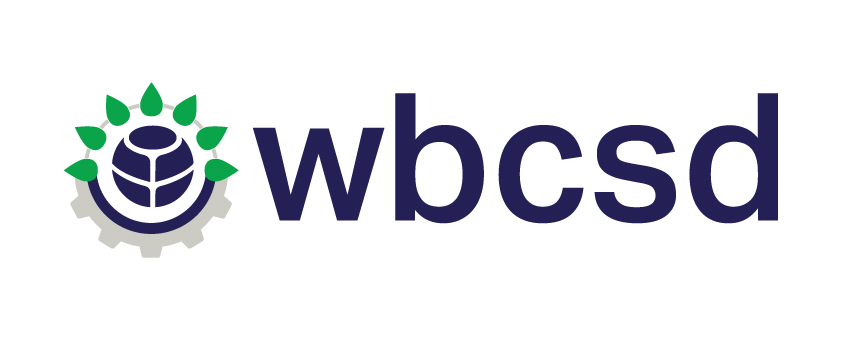Insulated Corporate Boards Pose a Threat to Shareholders, Others
New research shows risks to investors, customers, suppliers, and employees

Insulated Corporate Boards Pose a Threat to Shareholders, Others
NEW YORK, August 17, 2021 /3BL Media/ - Members of corporate boards of directors who fail to communicate with stakeholders beyond their company’s ownership and largest investors pose a threat to the success of the companies on whose boards they sit, according to a report by two global business organizations.
The report – Boards and their Stakeholders: The State of Play -- by the World Business Council for Sustainable Development (WBCSD) in collaboration with DNV, a global, independent organization whose expertise lies in assurance and risk management, is based on a survey of 104 corporate board members, company executives, and senior staff predominantly in the United States and Europe.
The survey’s findings show corporate boards are often detached from how the corporations they represent typically engage with stakeholders, who include customers, investors, employees, government regulators, communities, suppliers, environmental non-governmental organizations, and societal NGOs.
“In failing to communicate with all stakeholders, board members could be violating their fiduciary duties to investors because they could overlook new business opportunities or fail to identify reputational risks to their company,” said William Sisson, executive director, North America, WBCSD.
“The survey data shows most boards are usually informed about various stakeholder perspectives, especially those regarding the environment, social, and governance (ESG) matters, through management-written reports that are often filtered and one-directional,” Sisson said. “That doesn’t mean they are being provided misleading information, but it does show they are often making strategic decisions without considering the impact on or input from all of their stakeholders.”
Communications between corporations and all stakeholders is an essential point in WBCSD’s recent report Vision 2050: Time to Transform. It outlines actions companies must take in the next decade to act on the biggest challenges our societies face -- the climate crisis, the loss of nature, and growing inequality -- and the mindset shifts necessary to support this transformation, notably reinventing capitalism to reward true value creation.
By not communicating with stakeholders beyond company owners and their largest investors, 75% of the survey’s respondents said boards fail to manage reputational risks to their corporations. And, 68% of the respondents said boards that do not communicate with all stakeholders also risk missing new opportunities to create and protect value for their companies.
Other potential “consequences for failing to take into account stakeholder views” included increased exposure to risks (58%), becoming unable to deliver the purpose of the company (44%), increased stakeholder tensions (35%), and loss of customers (35%). Nearly one third (30%) said it also leads to losing talented staffers and negatively impacts a company’s ability to hire employees.
Other respondents said not taking all stakeholder views into account when making corporate decisions could lead to loss of investments (28%), reduced market share (18%), and, the company’s becoming irrelevant to society (21%).
Survey respondents said investors, customers, employees, governments, and local communities were their most important stakeholders. Suppliers and NGOs were considered lower in priority.
The research was conducted online over several months ending in February 2021 to learn how board engagement with stakeholders can drive and inform strategic decision-making. The quantitative data was supplemented with one-to-one interviews with respondents to obtain more detailed information.
In those follow-up interviews, respondents indicated that boards of directors need to have a good understanding of ESG issues, if they want to be able to identify new and emerging risks.
“It’s not about looking at risks with a backwards view,” the report states. “It’s about understanding what might be coming your way and incorporating that into your decision-making and strategy.”
The survey showed 70% of the respondents felt stakeholder engagement was important to their organizations to identify unforeseen issues, to better manage the corporation’s reputation, and satisfy stakeholder expectations. Other reasons for improved stakeholder engagement were to inform future decision-making (65%), co-create solutions and solve problems (55%), and get unfiltered views (51%).
The report states while investors’ perspectives were highly valued, there is “a growing trend towards incorporating other stakeholders’ views, with greater emphasis placed on boards’ responsibilities to oversee stakeholder engagement,” including concepts such as stakeholder capitalism, inclusive capitalism, and conscious capitalism.
Sisson said the report’s findings resulted in WBCSD offering up eight methods for boards to enhance their engagement with all stakeholders. They are:
- Know your stakeholders: Conduct materiality assessments or stakeholder mapping exercises to identify all groups of stakeholders. Those who have a high influence and high interest in the company’s operations should be considered material. The business should also consider stakeholders it directly impacts, including local communities, the environment, etc.
- Understand the expectations of and the impact on those key stakeholders: The business must consider what expectations those stakeholders have of the organization, how they are impacted by management decisions, and how they can identify potential risks and opportunities for the company.
- Ensure key stakeholders are consulted in decision-making: Stakeholders should be consulted through focus groups, advisory panels, site visits, etc. on decisions that are likely to impact them.
- Establish appropriate governance mechanisms to formalize operational relationships with stakeholders: The board needs unfiltered views and opinions from key stakeholders when those views may impact or inform the decision-making process. The role of the board vs. management when it comes to stakeholders depends on the stakeholder’s importance to the business model.
- Embed important stakeholder discussions into the board agenda: Boards of directors often refer to having insufficient time during meetings to discuss ESG or sustainability topics. But board meetings are scheduled months in advance, it is important that time is taken to consider material sustainability topics alongside other key agenda items, which are usually established by the CEO.
- Trust the views of stakeholders: Activities and exercises such as the materiality assessment, risk management, data collection and reporting can be used to further support the board in understanding and trusting stakeholder views.
- Act in the long-term interest of the company: Fiduciary duties dictate directors should act in the long-term interest of the company. When arbitrating stakeholder tensions and managing dilemmas, the board should consider the interest of the company as a whole, rather than the interest of the individual stakeholder group.
- Acknowledge existing tools and resources that can further embed sustainability: Activities and exercises such as the materiality assessment, risk management, data collection and reporting can be used to further support the board in understanding stakeholder views and how they are impacted by the company’s business decisions and operations.
For more information or arrange an interview about the survey, please contact Tom Pagano, 314-602-7549, or tompagano@mostrata.com.

